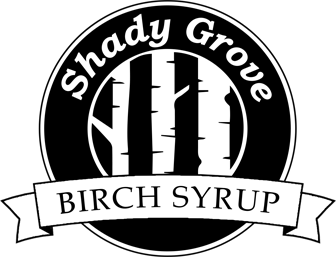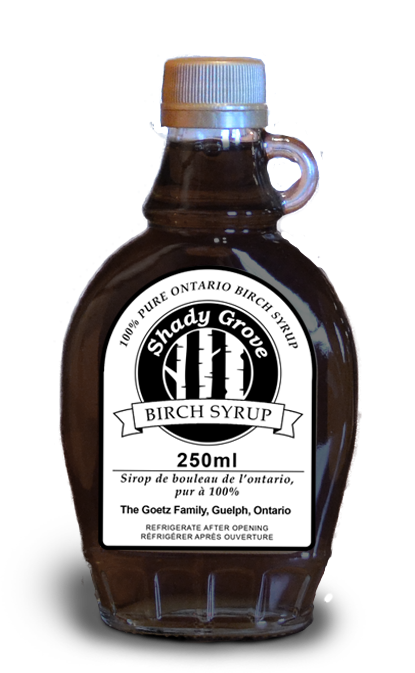A unique flavour packed medley drawn from Ontario’s majestic birch trees
Birch syrup is a rare treat. Unlike maple syrup, which requires 40 litres of sap to produce 1 litre of syrup, birch requires 85-150 litres of sap.
A Taste Unlike Any Other

Birch Syrup’s fabulous taste is quite unique. It is semi-sweet and described as combining flavours of honey, caramel, liquorice and molasses with a spicy, balsamic aftertaste.

Goes Best With…
The syrup can be used as a glaze for salmon, scallops, pork, wild game and root vegtables, barbeque sauces, marinades and salad dressings. In deserts it can be used in cake mix, combined with whipped cream, ice cream, or wild rice pudding and often used as an extract. It is nothing like maple syrup and a little goes a long way.

Nutritional Info
Containing less sugar, carbohydrates and calories than maple syrup and honey, birch syrup contains more protein, fiber, calcium and antioxidants than other syrups.
More Info
Buy Now
Enter your name and information below and we will contact you to arrange purchase and delivery.

